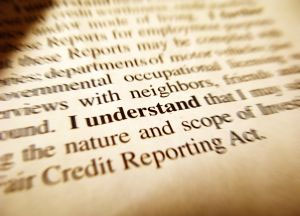It's tempting to blame our financial problems on something, or someone, else. After all, if it's not your fault that you are in your current situation, you don't have to do anything to change.
However, if you are tired of the way things are going with your money, it's time to take responsibility for your finances and start making some serious changes.
Who's In Charge of Your Money?
Your first step is to decide who's in charge of your money. Figure out your relationship to money, and acknowledge who's been calling the shots.
 Have you sort of abdicated your financial responsibilities? If you don't have a plan for your money, or any idea of how to use it to accomplish your objectives, you haven't really taken charge of your finances. Rather than just spending money on whatever comes along, think about your purchase decisions.
Have you sort of abdicated your financial responsibilities? If you don't have a plan for your money, or any idea of how to use it to accomplish your objectives, you haven't really taken charge of your finances. Rather than just spending money on whatever comes along, think about your purchase decisions.
Acknowledge that maybe you didn't “have” to buy that item. When you take the time to consider your purchases, and then adjust some of your decisions based on what's really important to you, it's possible to take back control of your spending. Look at your priorities, and decide how you want your money to improve your life.
You need to own your spending and saving decisions. Rather than just going along, or letting someone else tell you what you are “supposed” to have, think about what you need and what you want.
What about the Unexpected?
Many of us find ourselves in unexpected situations. A couple of years ago, the groundwater invaded our home. I wasn't expecting to spend the money necessary to fix the damage, and I certainly didn't want to spend that money. However, it had to be done.
Even if you can't always control some of your financial setbacks, you can determine how you will meet them. We had enough of an emergency fund at the time to cover the costs related to our flooded downstairs. We also took steps to avoid the same problem in the future by having a sump pump installed.
While it might not be pleasant to think about worst-case scenarios, you still need to consider some of the unpleasant possibilities. You need to build up an emergency fund that can help you deal with unexpected expenses. You should also take steps — including buying insurance — to protect your assets.
Finally, you can protect yourself against job loss by developing your skills. Even if you lose your job, the right skill set can result in being hired by another company. You can also make it a point to educate yourself and develop the skills that might allow you to start your own business.
You might not be able to control everything that happens to you, but you can be better prepared. And you can prepare yourself to meet the challenges that might come up.
While your current money situation might not be entirely your fault, you won't see any improvement if you just complain about it. Instead, take charge of your finances going forward and create a plan to improve the situation.
 I started thinking about it again when the direct mail ads started arriving — at a rate of three or four a week. I didn't seriously think of using any of them, though. A lot of the letters included very vague information and promises of fixed rates below 3%. Additionally, the FHA logo was prominent. Upon flipping over many of the letters, though, and reading the fine print, two things became apparent:
I started thinking about it again when the direct mail ads started arriving — at a rate of three or four a week. I didn't seriously think of using any of them, though. A lot of the letters included very vague information and promises of fixed rates below 3%. Additionally, the FHA logo was prominent. Upon flipping over many of the letters, though, and reading the fine print, two things became apparent: One of the more useful aspects of the tool is a look at inflation. Off to the side, you can see how much the cost of living is likely to rise by the time you reach a certain age (and begin to look like death warmed over). According to Face Retirement, by the time I hit the age 67 in 2047, the cost of living will rise by 222%. The tool also includes a look at what common consumer items will cost in different years. A loaf of bread is supposed to cost more than $7 in 2047, if the current trends hold.
One of the more useful aspects of the tool is a look at inflation. Off to the side, you can see how much the cost of living is likely to rise by the time you reach a certain age (and begin to look like death warmed over). According to Face Retirement, by the time I hit the age 67 in 2047, the cost of living will rise by 222%. The tool also includes a look at what common consumer items will cost in different years. A loaf of bread is supposed to cost more than $7 in 2047, if the current trends hold.